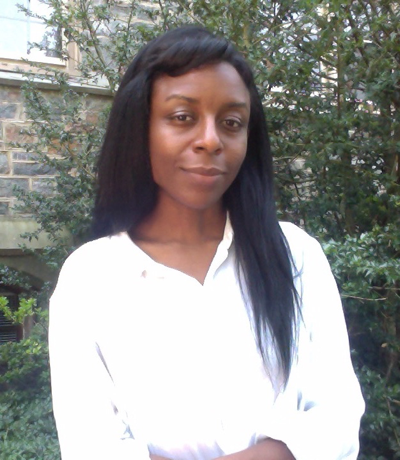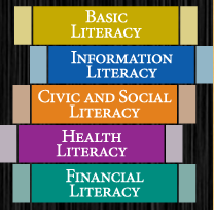With some embarrassment, I start this article with the admission that my first introduction to PA Forward was through my experience as a PALS attendee this June. There was so much talk about PaLA’s PA Forward, and I sat mutely, racking my brain to pull out non-existent memories of what exactly that was. Finally, I asked fellow PALS attendees to explain what PA Forward was. They described the different literacies — basic, civic and social, information, health, and financial — and how PA libraries were encouraged to create programming around them.
My first thought was, Ah, okay. Cool. That makes sense. My second thought was, Hm…but does that actually fit any of the work that we do since our focus is *information* literacy? The “we” I was grouping myself in referred to academic librarians. Browsing through the Compendium archives, I noticed I probably wasn’t the only one who felt that way — very few articles addressed academic libraries’ use of PA Forward, and a previous Compendium article, “PA Forward and Academic Libraries,” written by PALS alumnus and academic librarian Adam Balcziunas in 2015 recounts (and deftly overturns) the seeming disconnect between PA Forward’s goals and college and university libraries.
Ruminating about this over time as I’ve become more and more familiar with the work being done through the PA Forward initiative, I’ve thought about my own approaches to my work as an instruction librarian focused on information literacy, and how and if I’ve incorporated the other four PA Forward literacies into my instructional practice. I am an academic librarian, and am consequently invested in (and, frankly, explicitly tasked with) fostering the skillsets that contribute to college students’ academic success. But my own philosophy of librarianship runs much more broadly than that — I’m a librarian because I believe in lifelong learning, and that education of any kind can be transformational. Here are several ways I (and probably you, too!) can think beyond the information literacy box:
Partner with campus organizations.
Health and wellness centers, career centers, and student affairs often run programming that spans the gamut of student life, from sex education to studying tips to resume help. While none of these and similar other types of programming lie within traditional course-integrated library instruction, certainly librarians have knowledge of value to contribute, and in doing so work toward learning outcomes that align with the different literacies espoused by PA Forward.
Reach out to student clubs.
The library can most obviously provide material resources (books, ebooks, magazines, etc.) in support of student clubs, but especially in this era of diminishing book budgets, don’t discount the possibility of offering one of the library’s most underutilized resources — yourself. Hold an information session on where and how to find resources of interest to the subject matter of the club, or perhaps you have the knowledge area or skillset to be an advisor to a club.
Highlight student research that transcends the classroom.
Attaining a literacy is more than learning — it’s doing. How do the students on your campus apply their research knowledge? Are there outlets by which students can share their research with the campus community? The library, as a central site for research support, is in a unique position to promote that work. Put it in your newsletter, invite students to host panels or discussions, or share poster sessions on your website. Show students that the work they do matters beyond a grade.
Don’t forget: there’s a community outside campus.
Our primary constituents are our students, staff, and faculty, yes, but no higher education institution exists within a vacuum. How can you work with local schools in your area? Or public libraries, or community centers? My experience is that reaching out to these groups (if they don’t reach out to you first) yields very successful partnerships that prove to be beneficial for all parties involved.
Additionally, the Association of College and Research Library (ACRL) recently released its Framework for Information Literacy in Higher Education, a pedagogical manifesto that emphasizes critical thinking, constructivist notions of learning and knowing, and overall, a more holistic, fluid view of information literacy that can cohere nicely with the five pillars of PA Forward. Often the academic librarian’s emphasis on information literacy falls heavily on scholarly conceptions of information seeking and knowledge-creation, but don’t discount alternative avenues of impact and literacy that fall outside of the academic.
For more ideas on how to promote PA Forward Literacies in your library, visit the PA Forward Commons and be sure to add your programs to the database by completing the PA Forward Commons Submission Form!



